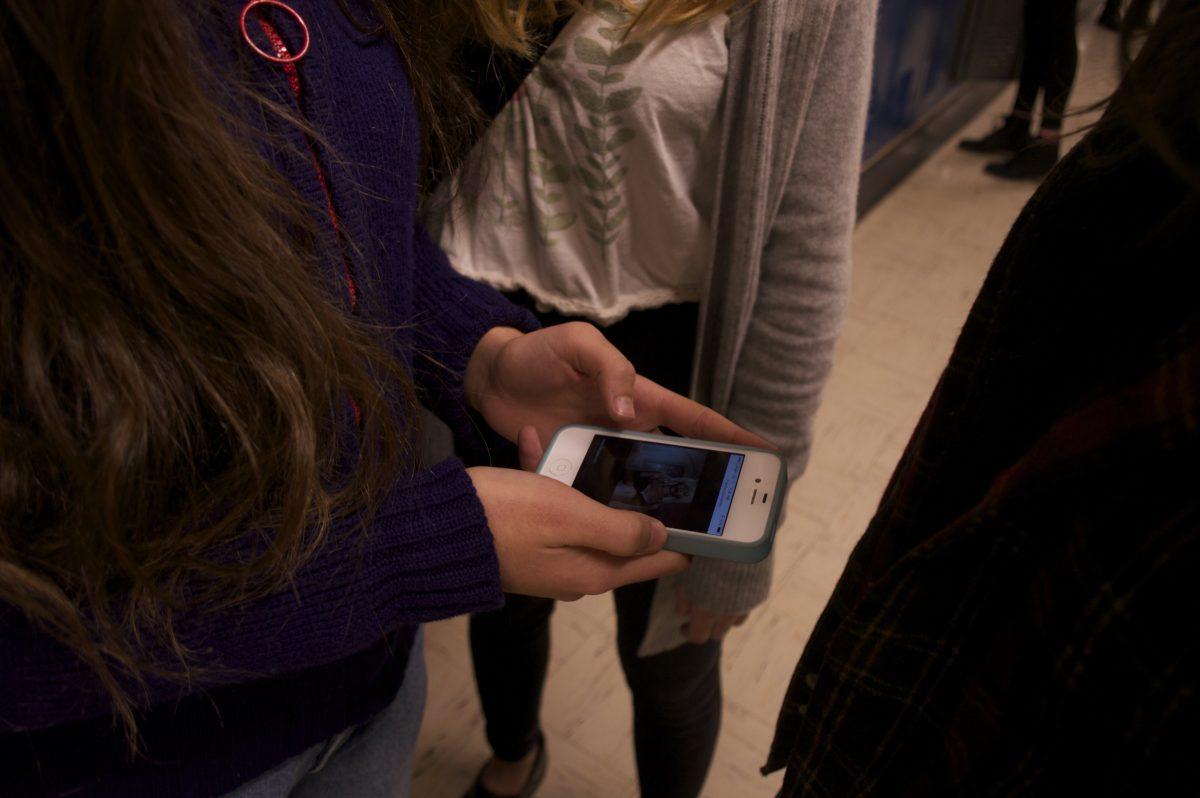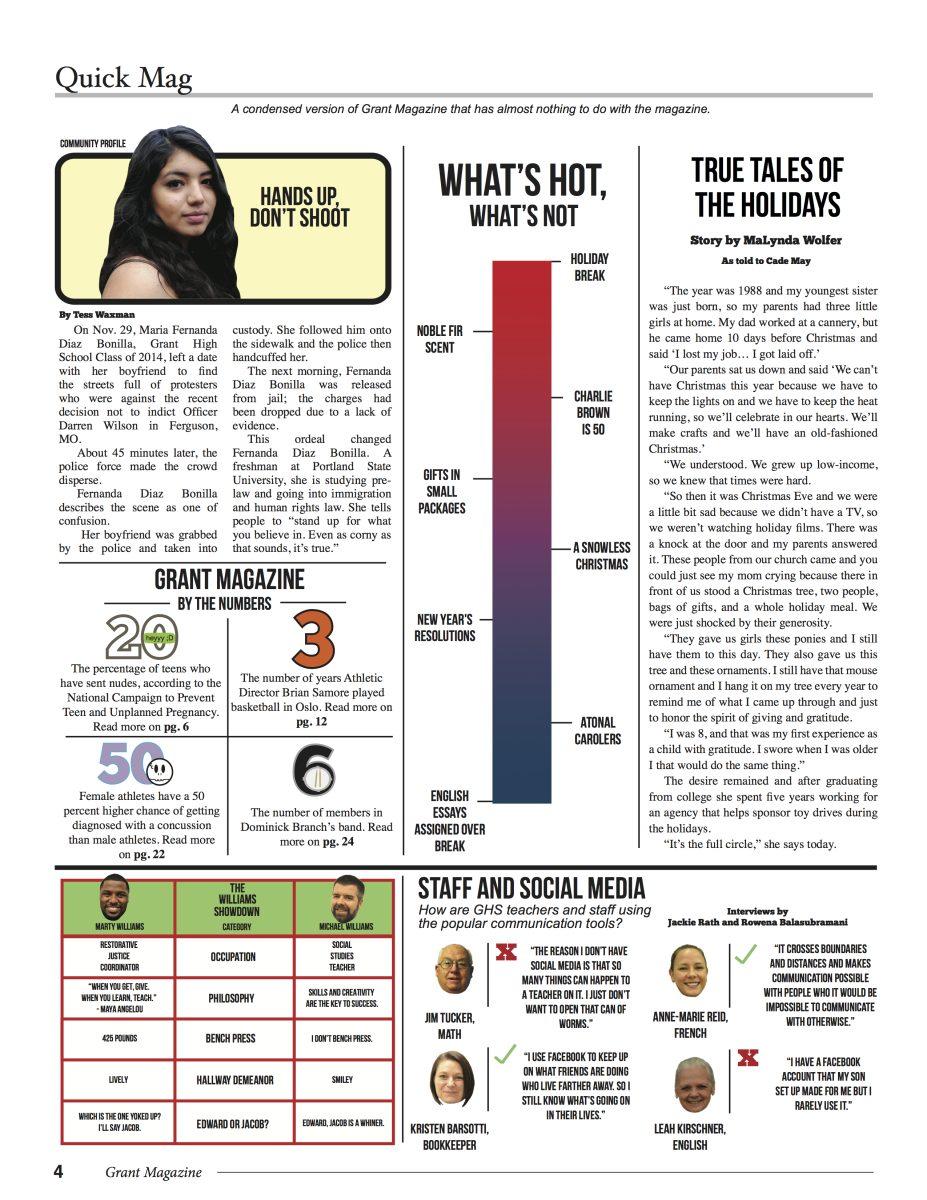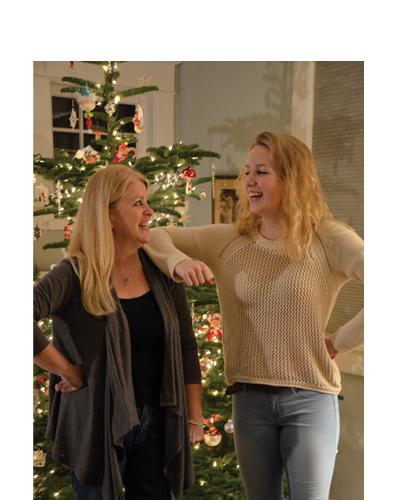In the weeks after a sex scandal rocked Grant High School, attention from the media has died down. The television news trucks have disappeared. The swirl of rumors that surfaced is now an afterthought. And the school community is trying to move forward.
But a specter still hangs over the building from the police investigation into allegations that several students had sex in rooms on campus and that someone made a video of an encounter before using social media to send it to other people.
Nothing has been made public about the students involved in the investigation. School officials can’t talk about what happened because of privacy reasons. But the impact of the case is being felt around the school.
Students are hearing from adults about not pushing the limits when it comes to social media. Grant administrators and staff are on alert to make sure students aren’t left unsupervised, a difficult task at a high school. And people who work with teens used to having a level of independence are having to rethink how they supervise students.
Grant yearbook advisor Anne Berten says the tightened rules have been difficult for her student staff to work with. “It’s hard to coordinate, especially if they want to work after hours,” she says. “It’s no fun for anyone.”
Sports teams and other clubs, including Grant Magazine, are faced with a heightened need for round-the-clock adult supervision.
As investigators continue digging for the truth, Grant High has to deal with the second major scandal in three years – after police investigating accusations of hazing during the 2011-12 school year.
Requiring supervision of students is not a new rule, says Principal Carol Campbell. “Those kinds of safety precautions have always been in place,” she says. “I think when something like this happens, we’re just a little more diligent.”
When Grant counselor Tearale Triplett first heard the news of the scandal, he wasn’t surprised. “I was very disappointed, but I wasn’t shocked,” he says. “This type of activity has been going on since the beginning of time, so that’s not anything new. What is new is the promotion of it.”
Grant girls basketball coach Michael Bontemps made a point of striking up a discussion amongst his team. “We (had) a conversation about how your behavior affects the group, how your behavior reflects on you, about the things that you give to other people,” says Bontemps.
At a recent game against played at Aloha High School, Bontemps and his players were in the stands watching. He noticed the girls on his team taking “selfies” and sending them to others. “You know, they just throw it out into the public,” he says. “It’s become so commonplace that they don’t really examine any of the consequences of that.”
School nurse Lue Ann Beck says the initial hype made her reflect on discussions she’s had with her own kids in the past, and she found herself hoping that it would cause Grant parents to do the same. “This has really impacted a lot of people’s lives that are involved in it,” says Beck. “I think the rumors can be what’s really damaging.”
Some teachers and students worry openly that the recent scandal – so close to the hazing incident – would force families to choose another high school when the time comes. Mimi Endo, an eighth grader at Mount Tabor Middle School, says her family saw the news coverage.
“A bunch of people were coming up to me and asking if I was still going to Grant after what happened,” Endo recalls. “I said, ‘Yeah’ and a lot of people were kinda shocked by it. I have friends that aren’t going to Grant anymore after what happened.”
Andy Shaw has two eighth-grade children planning to attend Grant next year and he agrees. “For us, the academic program at Grant…the environment, the staff, seem totally separate questions from what kids did in this instance,” Shaw says.
Vice Principal Kristyn Westphal says what happened presents an opportunity for staff to make changes in the school’s culture. “I think that the longer term impact hopefully will be a positive one,” she says.
In the long run, if things go well, the incident will help open up discussions.
Plans are in the works for a developing a curriculum for next year having to do with social media and the issues it presents.
Freshman English teacher Dylan Leeman remembers when a similar curriculum was put in place after the hazing incident went public. When the latest incident occurred, Leeman had an open discussion with his classes. Students, he said, had no idea that sending or sharing naked pictures is illegal.
“Teens imagine themselves to have the full Bill of Rights and they don’t,” he says. “Whatever exactly the sex culture is at Grant, we – as the adults in the building – have a fairly small ability to control it. But we can help with the education of the laws and the implications of their actions, which I think are the pieces that are ill-understood.”
Health teacher and assistant football coach Randy Heath agrees. “I don’t know if we can stop it,” he says. “But we have a responsibility to address it. If other schools think this is an isolated event, they are sorely wrong.” ◊

































